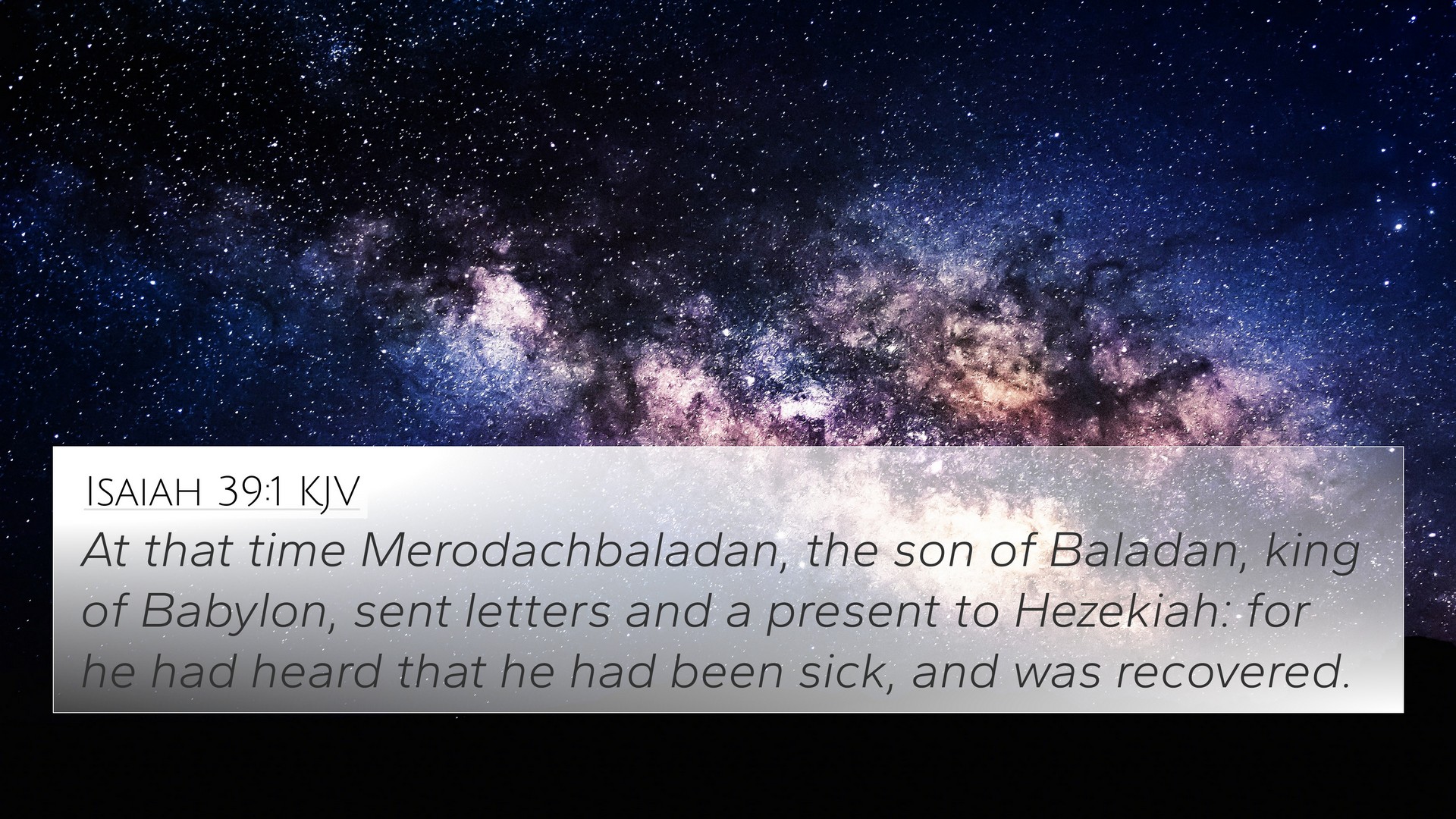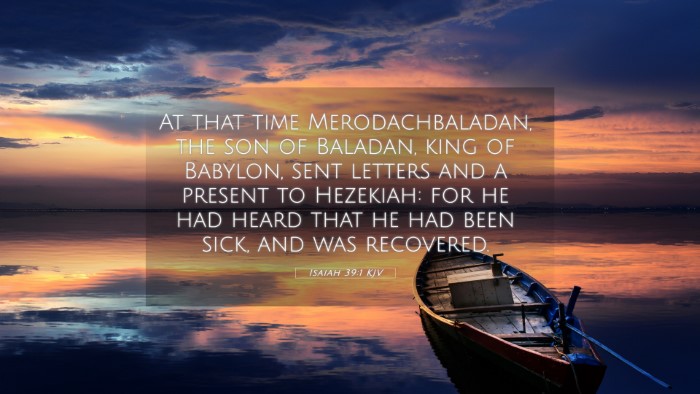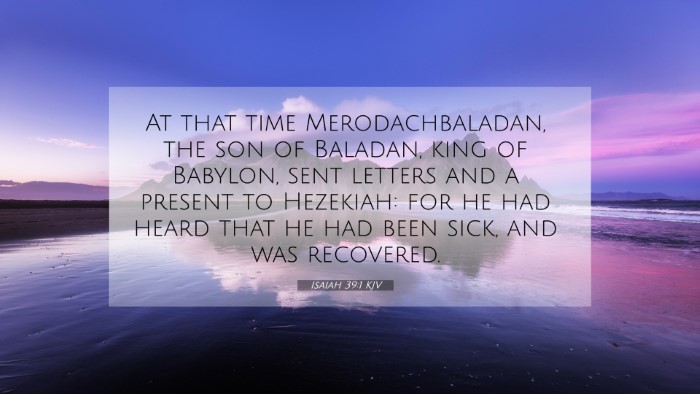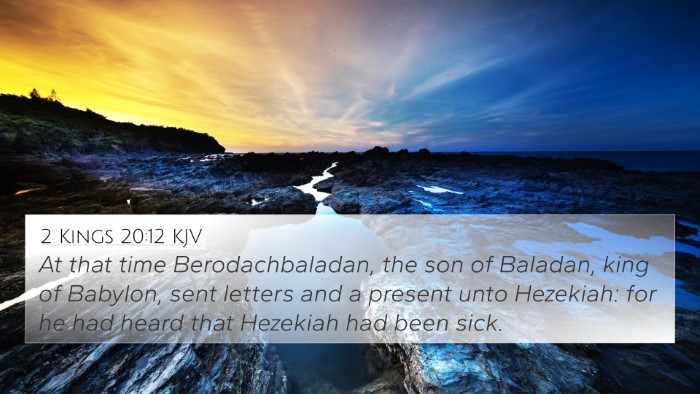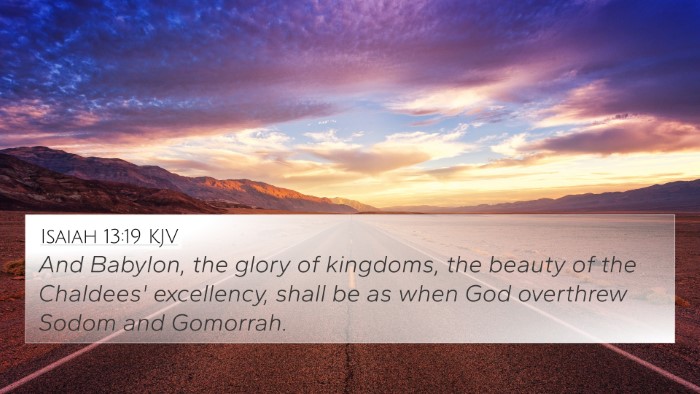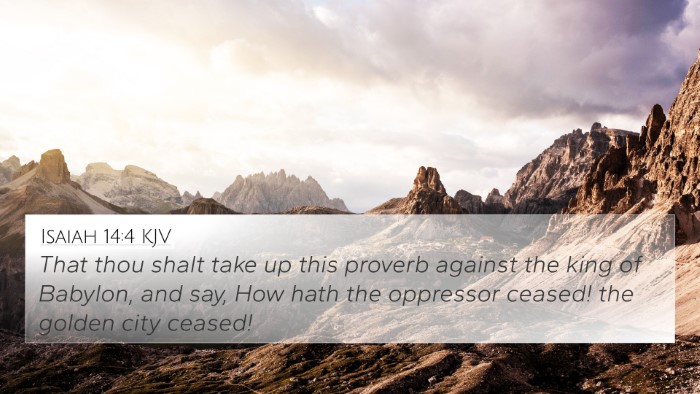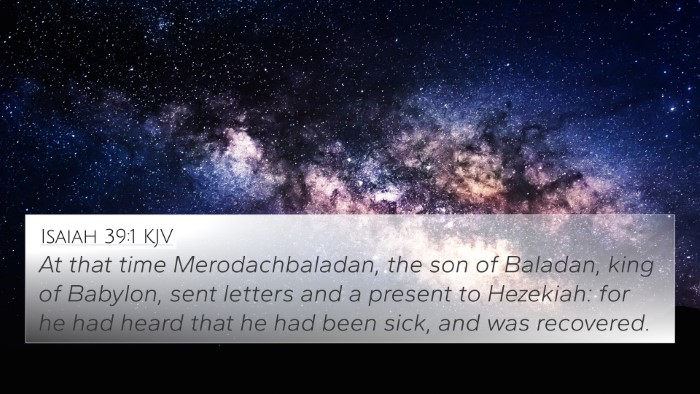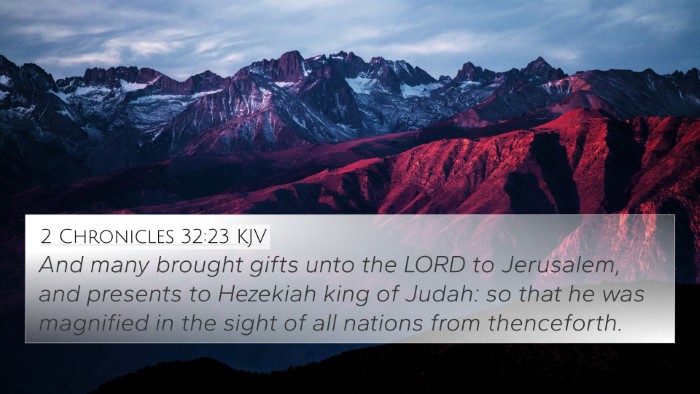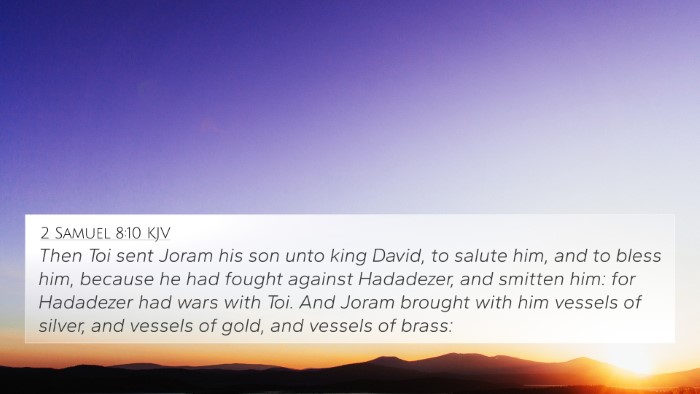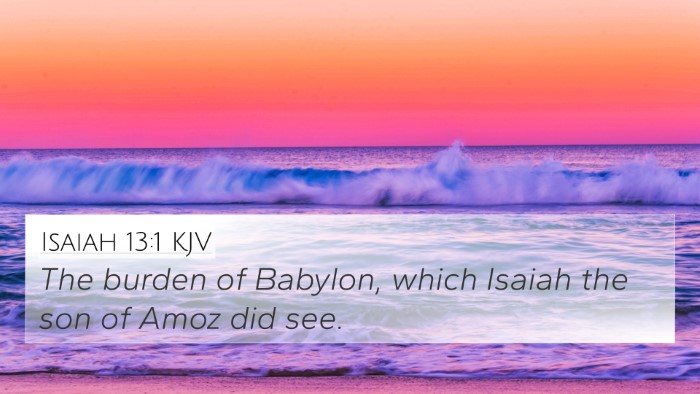Understanding Isaiah 39:1
Isaiah 39:1 states: “At that time Merodach-baladan, the son of Baladan, king of Babylon, sent letters and a present to Hezekiah; for he had heard that he had been sick, and was recovered of his sickness.” This verse provides a critical moment in the narrative of Hezekiah, illustrating both political endeavors and the providence of God.
Summary of Key Themes and Insights
This verse encapsulates several significant themes present throughout the Book of Isaiah and the wider biblical narrative. The visit from Merodach-baladan, the Babylonian king, reflects the geopolitical landscape of the time, characterized by shifting alliances and the rising power of Babylon.
- The Importance of Political Alliances: Hezekiah's health recovery has drawn notice from other nations, specifically Babylon, indicating the significance of Judah in the political realm.
- God's Sovereignty: The mention of Hezekiah’s sickness and recovery speaks to God’s power over life and death, showcasing His ability to intervene in human affairs.
- Warnings Against Pride: The interaction with Babylon foreshadows future consequences, warning against pride in alliances with worldly powers, as elaborated upon in later chapters.
Cross-References and Related Scriptures
This verse connects intricately with other scriptures, fostering a deeper understanding through comparative analysis. Here are relevant cross-references:
- 2 Kings 20:12-15 - This passage recounts the same event of Babylon’s envoy visiting Hezekiah, providing further context to the events surrounding his life.
- Isaiah 38:9-20 - The healing of Hezekiah from his sickness is detailed here, offering insights into the divine nature of his recovery.
- Isaiah 14:4 - A prophecy against Babylon highlighting the eventual downfall of the empire, which ties back to the political significance of this encounter.
- 2 Chronicles 32:31 - This verse parallels the account, emphasizing Hezekiah’s decisions and God’s continued guidance during this tumultuous period.
- Jeremiah 51:7 - Offers a reflection on Babylon, enhancing the theme of its significance as a rising power and its eventual judgment.
- Luke 10:9 - This New Testament verse on healing echoes the miraculous aspect of Hezekiah's recovery, linking to Christ's ministry of healing.
- Romans 11:22 - Illustrates God’s kindness and severity, paralleling themes of Israel’s status and their interactions with surrounding nations.
Insights from Public Domain Commentaries
Public domain commentaries provide layered interpretations of Isaiah 39:1, each enriching our understanding:
Matthew Henry's Commentary
Henry notes the fascination of foreign nations with God’s people, particularly reflecting on how Hezekiah's fame as a leader led to unexpected visitors. He draws attention to the purpose of the visit, suggesting that it was both congratulatory and potentially manipulative.
Albert Barnes' Notes on the Bible
Barnes emphasizes the prophetic significance of these events, highlighting that they set the stage for the impending Babylonian captivity. He remarks on the strategic motivations behind the Babylonian king’s actions and the implied caution for Hezekiah in dealing with external powers.
Adam Clarke's Commentary
Clarke examines the character of Merodach-baladan, noting his ambitions and the political maneuvering reflected in the visit. He considers the reaction of Hezekiah and the implications for Judah’s future, forecasting potential disasters that would arise from misplaced trust.
Inter-Biblical Dialogue
Examining the connections between various scriptures enhances our understanding of the biblical narrative as a cohesive whole. The theme of Hezekiah’s dealings with Babylon can be seen in light of God's overarching plan for redemption and restoration, establishing a rich dialogue between the Old and New Testaments.
Conclusion
In Isaiah 39:1, we observe the intertwining of divine providence and human action, illustrating the complexities of faith amid political intrigue. Through careful cross-referencing with related scripture, we gain profound insights into not only the historical context but also the enduring truths of God's sovereignty and the Christian experience today.
